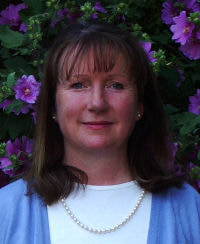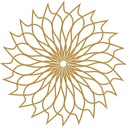Two Lectures with
Dr Jayne LM Donegan
MBBS DRCOG DCH DFFP MRCGP MFHom
Live Online.... Sunday 29th March 2020

Dr Jayne LM Donegan has practised as a doctor and GP for 36 years. She has extensive experience in paediatrics. She is currently practising as a Homeopath and life style advisor. She started off her medical career as an enthusiastic supporter of the Universal Childhood Vaccination Program. Her research into the problems associated with vaccination began with the Measles Rubella Campaign in 1994.
Extensive investigation of the science behind the hype led her to radically change her views. She believes that every parent should be given the opportunity to see that vaccination: its safety and efficacy, is not a black and white issue, so that they can make fully informed choices about their health.
Should you vaccinate your child or not? Only you, as a parent, can decide what is best for you and your family.
Extensive investigation of the science behind the hype led her to radically change her views. She believes that every parent should be given the opportunity to see that vaccination: its safety and efficacy, is not a black and white issue, so that they can make fully informed choices about their health.
Should you vaccinate your child or not? Only you, as a parent, can decide what is best for you and your family.
What to Do if you Don't Vaccinate - and Even More if You Do.
Nursing Children, the Elderly and all those in-between through Acute Illness.
12.00 - 14.00
As a parent, making your sick child feel better is your first instinct. However, what to do in this situation is becoming a lost art. Most of us are not trained in medical care, have limited knowledge, and are reliant upon the doctor for every ailment. This has made child illness and infectious diseases such as measles a worrying experience.
If you would like to end the confusion which arises over conflicting advice given on child health, stop the fear which comes when dealing with a really poorly child, and have effective drug free alternatives to hand, then this lecture by Dr Jayne Donegan, GP and Homeopath with extensive experience in child health, will give sound safe strategies to cope at this time and outline simple home procedures.
Outline for the lecture:
If you would like to end the confusion which arises over conflicting advice given on child health, stop the fear which comes when dealing with a really poorly child, and have effective drug free alternatives to hand, then this lecture by Dr Jayne Donegan, GP and Homeopath with extensive experience in child health, will give sound safe strategies to cope at this time and outline simple home procedures.
Outline for the lecture:
- Introduction
- Health beliefs/ fears regarding childhood illness/ infections
- Germ theory of disease and medical model - how this affects treatment options
- Holistic model of disease. Problems of suppression/ reduction of fever.
- Break
- Basic strategies for coping with any acute childhood illness/infection
- Simple guide to homoeopathy for acute fever
- Quiz
- Questions/ Plenary
Measles, Mumps, Rubella – What you need to know to give Informed Consent
Which is Better? The Disease or the Vaccine?
15.00 - 17.00
In the Feb 7th 1959 issue of the British Medical Journal, Dr John Fry, GP, remarked, “Many mothers have remarked “how much good the attack has done their children,” as they seem so much better after the measles.” In the 1950s and 60s, parents used to actually take their children to Measles, Mumps and Rubella parties to try and get them infected.
After a 1990s measles outbreak in a Steiner community in Gloucester, England most parents reported a strengthening and maturing of their child both mentally and physically afterwards “supporting the notion that measles is not a severe illness in most children,” although the author pointed out that the cases were in, “fit, well nourished children from a community that advocates a healthy lifestyle.” http://www.ncbi.nlm.nih.gov/pmc/articles/PMC1731978/pdf/v055p00685.pdf
Advocating a healthy lifestyle as a viable alternative vaccination against measles is not am option that the Department of Health offers to parents.
Part One
After a 1990s measles outbreak in a Steiner community in Gloucester, England most parents reported a strengthening and maturing of their child both mentally and physically afterwards “supporting the notion that measles is not a severe illness in most children,” although the author pointed out that the cases were in, “fit, well nourished children from a community that advocates a healthy lifestyle.” http://www.ncbi.nlm.nih.gov/pmc/articles/PMC1731978/pdf/v055p00685.pdf
Advocating a healthy lifestyle as a viable alternative vaccination against measles is not am option that the Department of Health offers to parents.
Part One
- What are your greatest fears about these diseases? A brief look at ‘Germ Theory of Disease’ and its pitfalls vs the Holistic Model of Disease
- Basic strategies for coping with any acute childhood illness infection
- Simple guide to homoeopathy for acute fever
- Mumps
- Normal course of the disease
- Will it make your child sterile? Will they get mumps meningitis?
- Is it a good idea to get mumps – boys and girls?
- What does the vaccine do? – Genotype drift
- Supportive treatment/ Homeopathic specifics
- Rubella
- Is it serious?
- Why do we vaccinate against it?
- Does the vaccine work?
- What does the vaccine do? Are you more likely to get Rubella when you are pregnant?
- Supportive treatment/ Homeopathic specifics
- Measles
- The Normal course of the disease
- Is it still a killer? Has it changed over the course of the 20th – 21st Century
- What does the vaccine do? – Atypical measles
- Advantages of getting measles
- Supportive treatment/ Homeopathic specifics
- Questions
